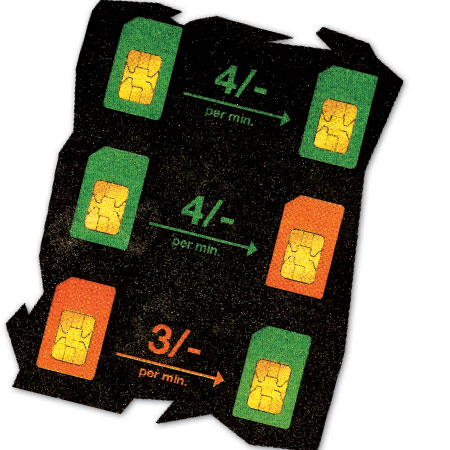×
The Standard e-Paper
Home To Bold Columnists
 |
| A paid up advertisement by Orange Kenya showing cross network call rates. [PHOTO: FILE/STANDARD] |
By JEVANS NYABIAGE AND EMMANUEL WERE
NAIROBI, KENYA: The gloves are off for a new round of mudslinging and messy fight for the local mobile phone services market. Orange Kenya has gone bare knuckle depicting Safaricom’s call tariff as expensive compared to its own, potentially opening up a new all-out war to fight for consumers in the competitive mobile phone market.